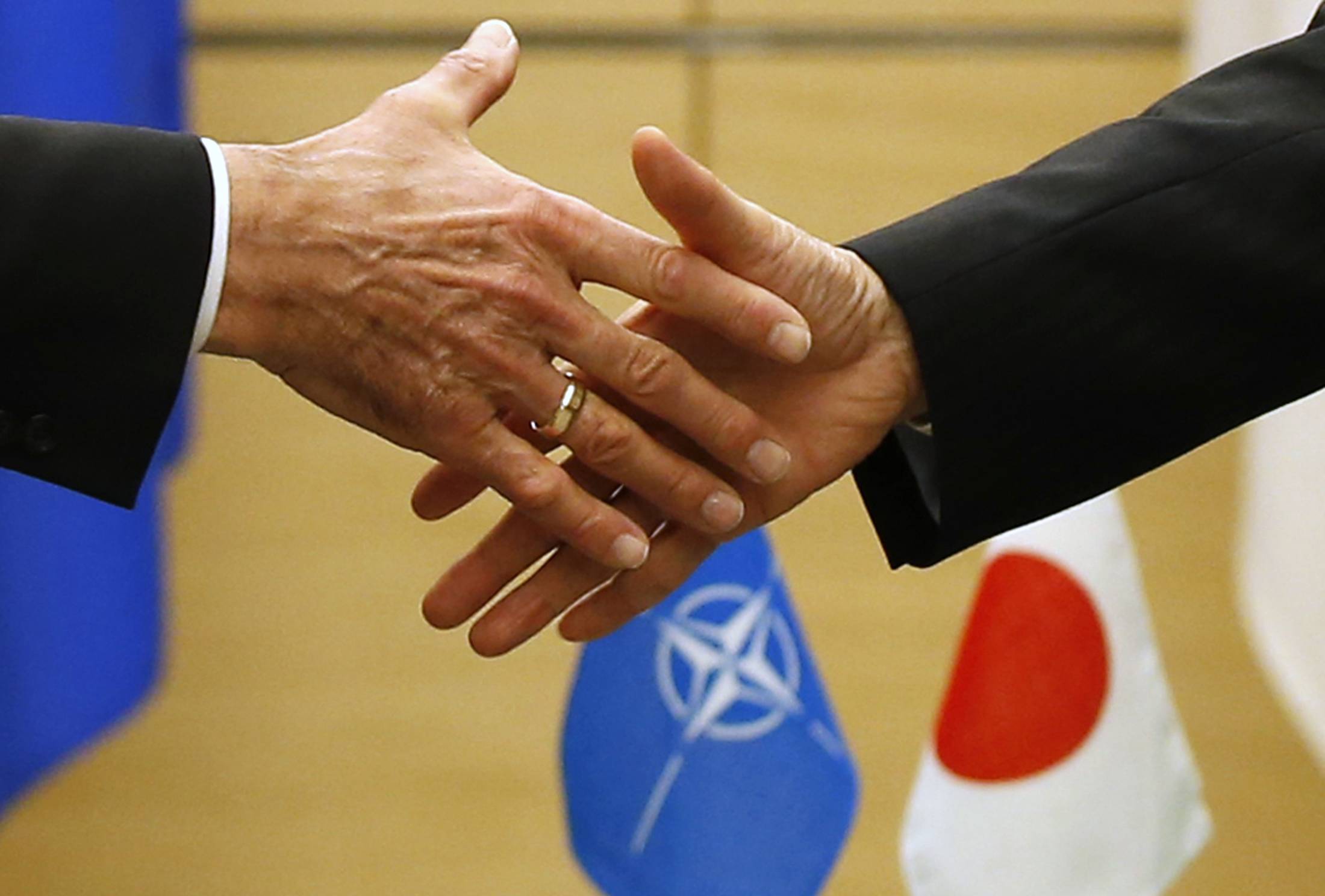Last week, sources indicated that the Japanese government is taking concrete steps to upgrade its relationship with NATO.
Officials from Japan and NATO are working to conclude a new agreement on cooperation before the next NATO summit in July and the group is looking to open its first Asia-based liaison office in Tokyo. For the two parties, these actions are a natural outcome of a yearslong effort to deepen ties.
Outwardly, the logic of all this may seem a bit odd. After all, NATO is a military alliance between North American and European partners underpinned by mutual defense obligations. Meanwhile, Japan’s principal security threats are a world away in Asia and its constitutional provisions limit how far the Self-Defense Forces can go in formal cooperation with NATO militaries. So how can one make sense of the Japan-NATO relationship?



